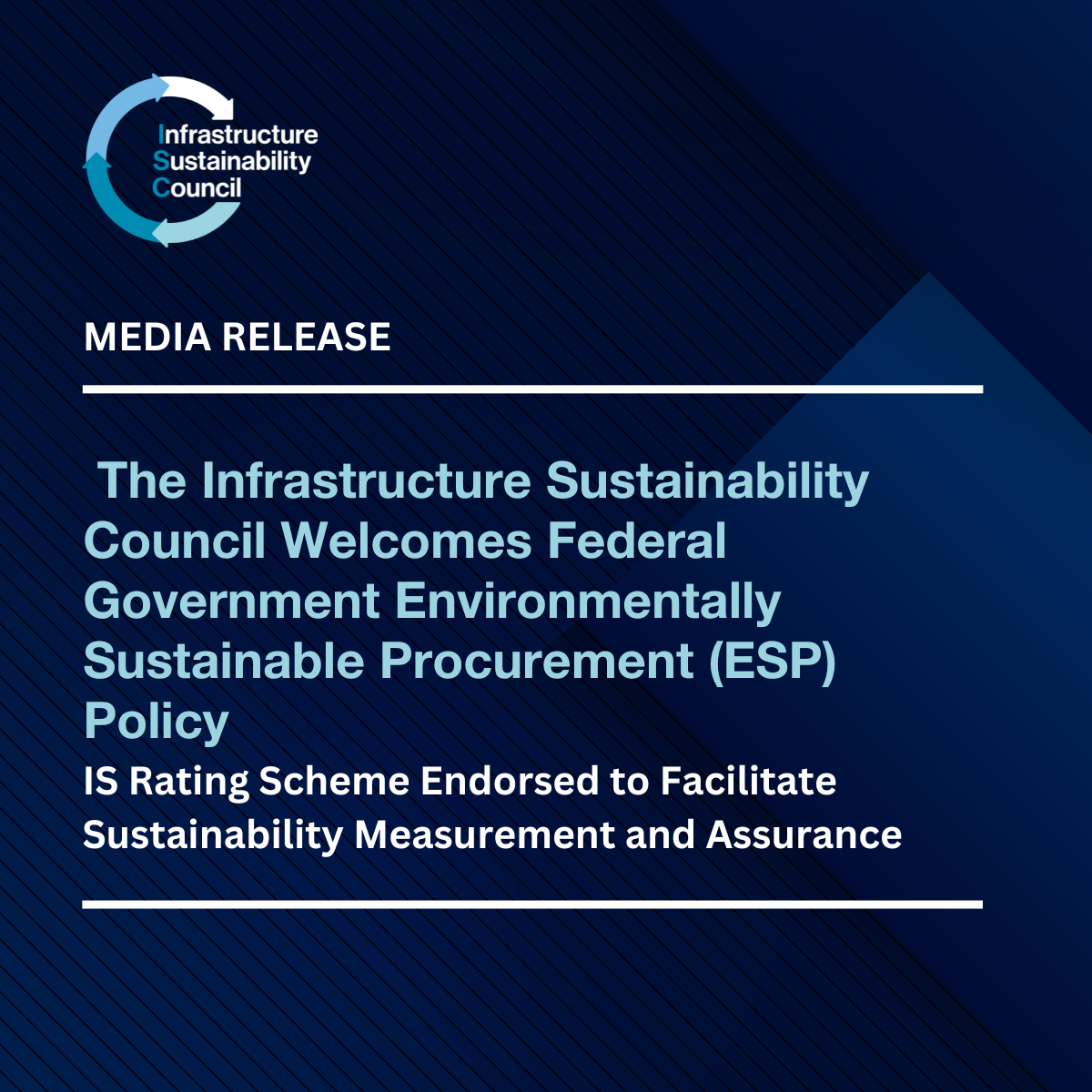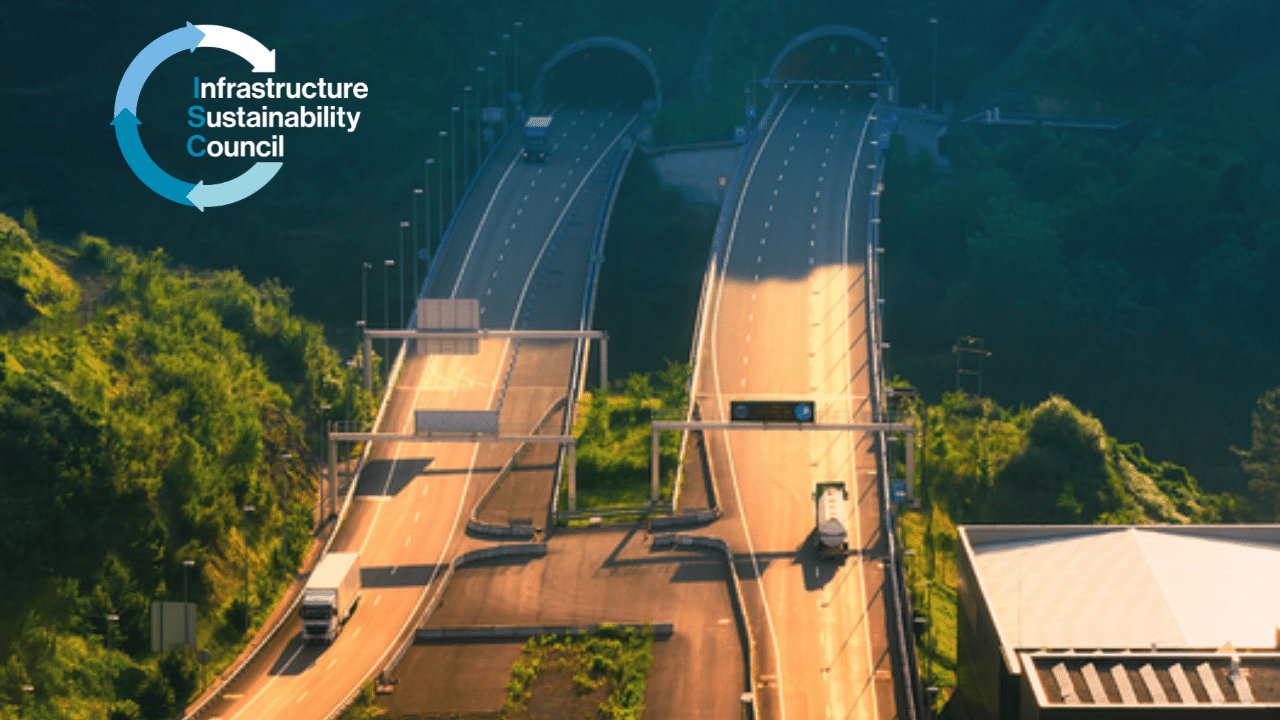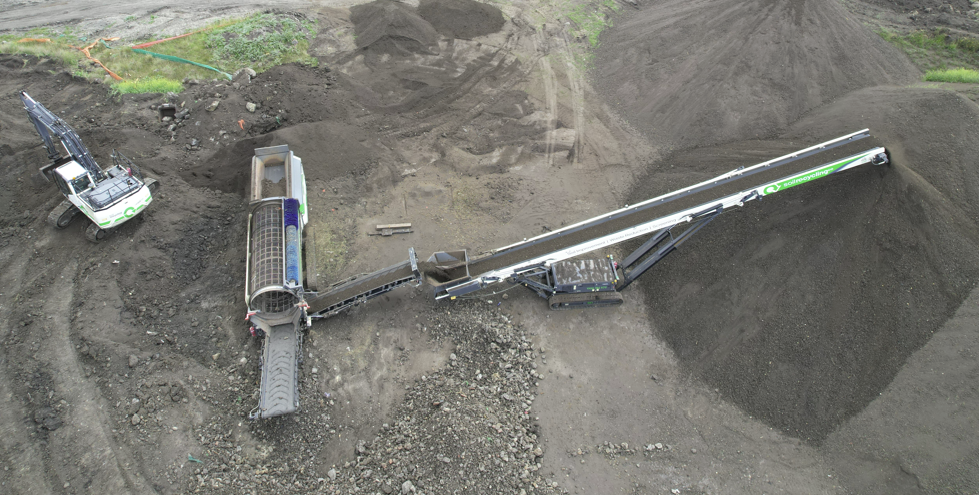IS Rating Scheme Endorsed to Facilitate Sustainability Measurement and Assurance
The Infrastructure Sustainability Council (ISC) has welcomed the Federal Government’s Environmentally Sustainable Procurement (ESP) Policy, which will help the Government better measure the environmental outcomes from its agreements with suppliers, including through the application of the ISC’s Infrastructure Sustainability (IS) Rating.
The ESP Policy establishes a reporting framework which will create a baseline of environmentally sustainable procurement. The policy will be phased in over two years, with phase one directed at the procurement of Construction Services from 1 July 2024.
The ESP has three focus areas: climate, the environment and circularity, or using existing resources for as long as possible, through refurbishment, reuse, repair, recycling, and alternative methods such as leasing/renting to achieve greater sustainability.
Suppliers will be required to report against the relevant metrics on all government contracts to which the ESP Policy applies – including for infrastructure projects with a procurement value threshold of greater than or equal to $7.5 million. One of the metrics endorsed in the ESP Policy Framework to meet Australian best practice standards is for suppliers to show they have achieved a verified IS Rating from the Infrastructure Sustainability Council.
“The transition to a net zero and circular economy requires a shift in how we all consume materials, including the Federal government, with its huge spend across the nation, procuring goods and services from thousands of suppliers,” said Patrick Hastings, Acting CEO, Infrastructure Sustainability Council.
“This is a powerful endorsement by the Minister for the Environment and Water, the Honourable Tanya Plibersek MP, in selecting the Infrastructure Sustainability Council’s IS Rating Tools to measure and assure environmentally sustainable procurement for construction services from 1 July 2024,” he said.
“Policy decisions that impact on procurement will drive considerable impact across these three focus areas. More broadly, the ISC celebrates the purpose outlined in the policy of stimulating investment and innovation in sustainable goods. We believe that this policy will further improve the maturity, capability, and capacity of sustainability practice within industry,” he said.
The ISC went on to note its strong support for annual reporting of performance results against the ESP Policy key indicators and expects this development will have an important signalling effect for private sector procurement also.
“Ensuring that progress is reported is essential to understanding where future efforts need to be directed to see achievement of net zero by 2050. The ISC looks forward to working with suppliers undertaking construction services to ensure that sustainability performance is measured in a way that meets policy reporting obligations and increases impact,” said Mr Hastings.
The Federal Government notes that the success of the ESP Policy will be measured against three key performance indicators (KPI’s): the extent to which greenhouse gas emissions are minimised; the extent to which there is an increase in the use of circular economy principles; and the number of suppliers contracted to provide goods and services to the Australian Govt that have a Supplier Environmental Sustainability Plan (SESP) in place.
The Government holds itself to account for performance under the ESP Policy. For transparency, results against the key performance indicators will be published annually on the website of the Department of Climate Change, Energy, the Environment and Water.
MEDIA CONTACT:
Nicki Bourlioufas
Director, Spot On Content & PR
nicki@spotoncpr.com
+61 411 786 933.
About the ISC:
The Infrastructure Sustainability Council (ISC) is a for-purpose organisation that has certified sustainability performance across Australia and New Zealand since 2012. We assess infrastructure assets across the
full spectrum of the asset lifecycle and we measure impact across the quadruple bottom line
of economic, environmental, social and governance.



